Dedalus, 2023 , 509 p. Reviewed for ParSec 8.
 Crumey’s work has never been marketed as Science Fiction but has many intersections with the genre; not least his exploration of parallel worlds and alternative histories. This is by far, at 509 pages, the most lengthy of his novels yet published. It features some of those earlier preoccupations – music, concepts from Physics, the reliability of memory – yet cannot be said to be truly like any of its predecessors. It is multi-layered, multi-voiced, in parts reading more like a biography of Beethoven than a novel, but never less than readable.
Crumey’s work has never been marketed as Science Fiction but has many intersections with the genre; not least his exploration of parallel worlds and alternative histories. This is by far, at 509 pages, the most lengthy of his novels yet published. It features some of those earlier preoccupations – music, concepts from Physics, the reliability of memory – yet cannot be said to be truly like any of its predecessors. It is multi-layered, multi-voiced, in parts reading more like a biography of Beethoven than a novel, but never less than readable.
We start off with a memoir from Beethoven’s sister-in-law, Therese, of his last days, but most importantly for this novel, of his last words, ‘Everything is allowed.’ Crumey deploys Therese’s voice beautifully. Practical, no nonsense, down-to-earth; not given to indulge the great man, for all his celebrity. We can utterly believe this is a woman who knew Beethoven and all his faults. But on this point Crumey has a trick up his sleeve.
There follows the first instalment of “Beethoven and Philosophy” as written by one Robert Coyle (the same one as in Crumey’s Sputnik Caledonia) ruminating on that subject – on which he has been asked to write a piece for a book commemorating the 250th anniversary of the composer’s birth. This superficially rambling but actually tightly written account discusses Beethoven’s music, life and connections while describing Coyle’s own circumstances navigating the Covid lockdowns, particularly the difficulties experienced by his deaf and dementia-ridden father and put upon mother. Coyle’s story weaves in and out of the text, interspersed with other sections centred on Axtoun House not far from Berwick Upon Tweed. These narratives are as written by the present-day Adam Crouch, a 1920s writer named J W N Sullivan (a confrère of John Middleton Murry and Katherine Mansfield,) another memory of the house as it was in 1823 delivered by a woman named Marion who was called to act as governess to the owner Colonel Wilson’s all but idiot ward, an 1860 polemical reminiscence from one of Beethoven’s biographers, Schindler, and a recollection of a visit to the Hyle Centre at Axtoun House in 1923 by one Celia Carter. Most of these are returned to, only Marion’s and Celia’s are not.
Marion’s is by far the longest section in the book and, while being read, seems to bear very little relation to the rest. In it Crumey subverts the conventions of the 1820s novel via Marion’s assertive personality (a bit too twenty-first century?) and her taking down in invisible ink of Colonel Wilson’s letters written to a “Dear Brother in The Fold,” a shadowy organisation which Marion initially dismisses. However, in this intricately woven novel it is unwise to discount any detail. As Coyle later says, “We may have a book on everything, masquerading as a novel, or as a criticism of Shakespeare, or as a history of music,” and on the subject of writing a novel about Beethoven further opines, “were it not that the plethora of pre-existing attempts already gave sufficient argument against, others could easily be adduced.” The subject is greater than the imitation and the project would require “a mutual inter-relation of form and content, in a manner I can’t imagine.” A neat deflection of any possible criticism of the present endeavour.
In the 1923 sections we discover that a woman named Martha being treated at the Hyle Centre is under hypnosis recalling (as false memories?) the experiences of Therese and we may infer it is her transcribed speech, some of which J W N Sullivan peruses, whose prose has up to now been presented as that of Therese.
Scientific speculation also peppers the narratives. We are told that while Einstein’s theory enables verifiable predictions and explains certain observed facts, Beethoven’s music expresses, “What is explained or expressed amounts to a kind of knowledge or meaning that enlarges human understanding.” Apparently E T A Hoffmann said, “Beethoven’s music pulls the levers of horror, fear, dread, pain, and awakens the infinite longing that is the essence of romanticism.” Martha’s recalled memories are compared to a kind of telepathy analogous to radio, with transmitters and receivers, possibly even amplifiers. A physicist at Axtoun House mentions reverse causality where an event may be determined by a future condition rather than the past and we are treated to Ouspensky’s thought that time is three dimensional, like space. Coyle comes to the conclusion that “there is no flow to time – we only think there is.”
It is, though, Beethoven’s life and legacy that ties everything here together; or rather “a lost opera by Beethoven, commissioned by freemasons. Like The Magic Flute but altogether darker.” An opera entitled The Assassins, or Everything is Allowed. Later revealed as being set in the time of the Crusades, featuring guardians of a magic elixir said to bring immortality or death to whoever consumes it, Hachichin, whose name may, or may not, have been derived from the drug.
As Coyle, Crumey has a go at those twenties authors who used the “real people as fictional characters technique” and who “turned life into art with fiercely score-settling energy, perhaps because the truth of their passions was greater than any that could be invented, or maybe they just lacked the confidence to make things up.” His own proposed novel will be about the inescapably mediated way Beethoven’s music is now received; as something – “as performance or meme, as story or picture, as succession of emotions, always as ‘as’.” I leave the final ‘as’ for the reader to discover.
The relevance of Crumey’s background in Theoretical Physics to everyday life – and to literature – is stated in the thought, “Quantum physics asks us to imagine forms of matter existing simultaneously in contradictory states. One need only look at human affairs to see such things in effect.”
This is exemplified in literature. It ought to be even more so in Science Fiction, where, as in music, everything is allowed.
Pedant’s corner:- “Vocal chords” (cords,) “suitably discrete” (of sexual liaisons; so ‘discreet’,) “Dr Hines’” (Hines’s,) “suddenly its increased” (it’s,) “and offered to Sullivan” (offered it to Sullivan,) “the kitchen cupboard was a different story when I opened and was rewarded” (when I opened it and was.) “‘Bring it when your ready.’” (When you’re ready.)
 This is Logan’s latest solo collection of stories, her first, The Rental Heart and other fairytales, I reviewed here. I have also read her novels The Gracekeepers and The Gloaming.
This is Logan’s latest solo collection of stories, her first, The Rental Heart and other fairytales, I reviewed here. I have also read her novels The Gracekeepers and The Gloaming. This, Stuart’s second novel, is running over much of the same ground as his first,
This, Stuart’s second novel, is running over much of the same ground as his first,  Super Nova is the name of a(n as yet unused in an emergency) rescue ship based on the Moon.
Super Nova is the name of a(n as yet unused in an emergency) rescue ship based on the Moon.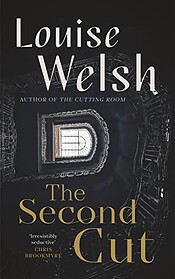 This one was published twenty years after Welsh’s first novel
This one was published twenty years after Welsh’s first novel 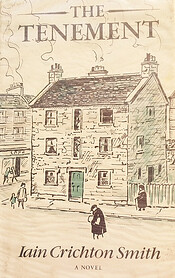 As its title betokens this novel is about the lives of the inhabitants of a tenement which is old, built of grey granite in a town on the east coast of Scotland, and is personified in the first chapter as being somewhat intolerant of young people, preferring its inhabitants to have lived a little. As we start there are no children living in the building.
As its title betokens this novel is about the lives of the inhabitants of a tenement which is old, built of grey granite in a town on the east coast of Scotland, and is personified in the first chapter as being somewhat intolerant of young people, preferring its inhabitants to have lived a little. As we start there are no children living in the building.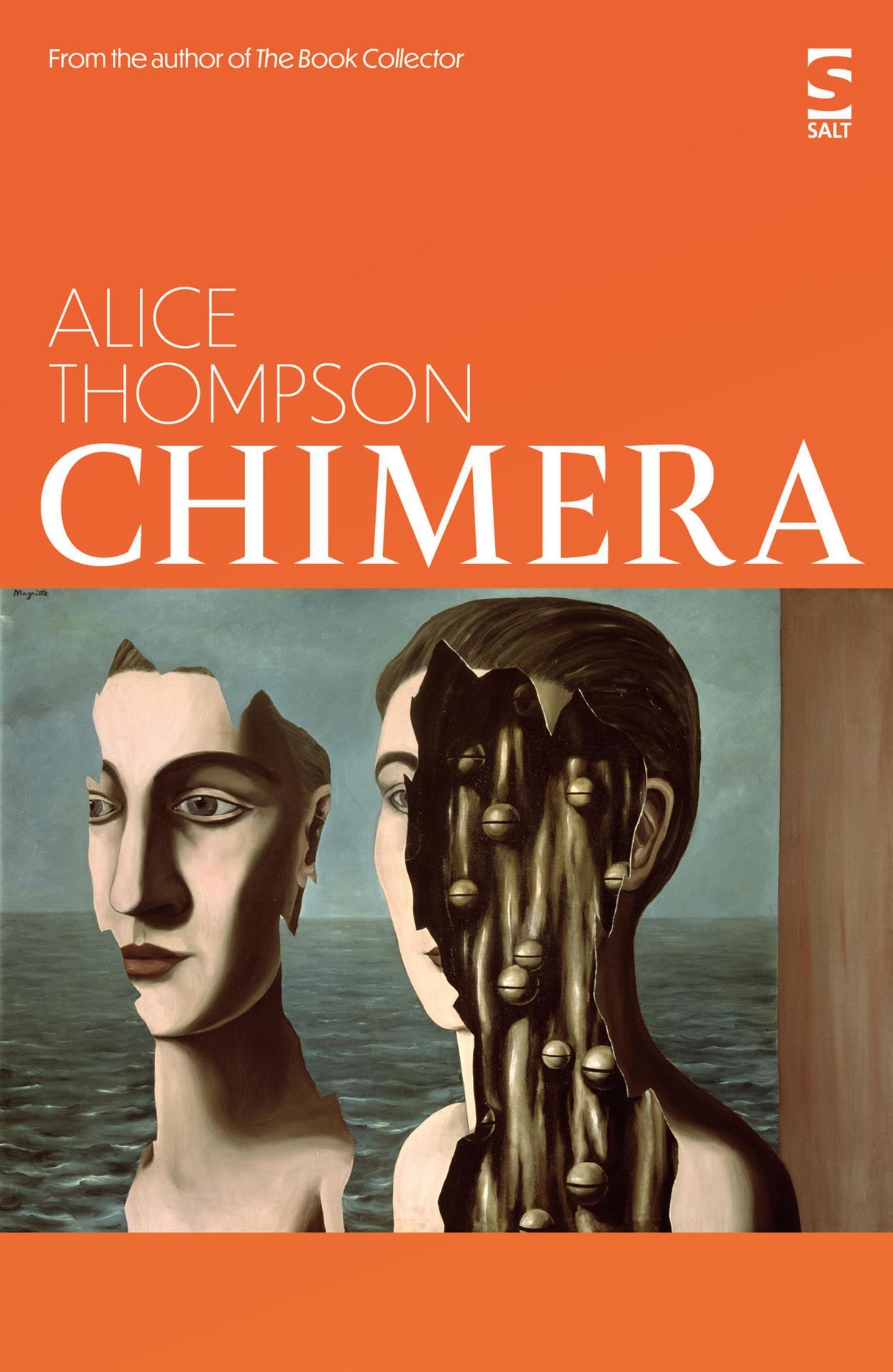 Alice Thompson is a veteran of seven previous novels but as far as I’m aware none of them has been Science Fiction. Concerning as it does a voyage to another planet (or, strictly, to its moon) this book could hardly be described as anything else. Yet it is not a typical exemplar of modern SF. Unlike the brashness of the average space exploration story its tonal qualities are more reminiscent of Stanisław Lem’s Solaris or David Lindsay’s A Voyage to Arcturus. Its epigraph, perhaps the most famous quotation from The Tempest, suggests the trajectory that will follow.
Alice Thompson is a veteran of seven previous novels but as far as I’m aware none of them has been Science Fiction. Concerning as it does a voyage to another planet (or, strictly, to its moon) this book could hardly be described as anything else. Yet it is not a typical exemplar of modern SF. Unlike the brashness of the average space exploration story its tonal qualities are more reminiscent of Stanisław Lem’s Solaris or David Lindsay’s A Voyage to Arcturus. Its epigraph, perhaps the most famous quotation from The Tempest, suggests the trajectory that will follow. Crumey’s work has never been marketed as Science Fiction but has many intersections with the genre; not least his exploration of parallel worlds and alternative histories. This is by far, at 509 pages, the most lengthy of his novels yet published. It features some of those earlier preoccupations – music, concepts from Physics, the reliability of memory – yet cannot be said to be truly like any of its predecessors. It is multi-layered, multi-voiced, in parts reading more like a biography of Beethoven than a novel, but never less than readable.
Crumey’s work has never been marketed as Science Fiction but has many intersections with the genre; not least his exploration of parallel worlds and alternative histories. This is by far, at 509 pages, the most lengthy of his novels yet published. It features some of those earlier preoccupations – music, concepts from Physics, the reliability of memory – yet cannot be said to be truly like any of its predecessors. It is multi-layered, multi-voiced, in parts reading more like a biography of Beethoven than a novel, but never less than readable. This is part of a departure for Kennedy. Her earlier books were short story collections and novels intended for adults. However in 2017 she started producing a series of children’s stories about featuring
This is part of a departure for Kennedy. Her earlier books were short story collections and novels intended for adults. However in 2017 she started producing a series of children’s stories about featuring 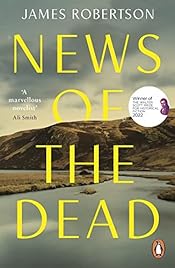 The book is set in a remote(ish) Highland glen, Glen Conach, named for the (unofficial) Saint who first converted the locals to Christianity, in three different time periods.
The book is set in a remote(ish) Highland glen, Glen Conach, named for the (unofficial) Saint who first converted the locals to Christianity, in three different time periods.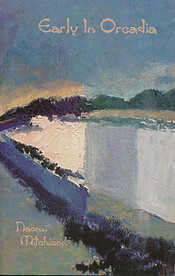 This is Mitchison’s imagination of what life in pre-historical Orkney might have been like for its human inhabitants. It is not much differet from her tales of the times when Vikings were the dominant force in the islands.
This is Mitchison’s imagination of what life in pre-historical Orkney might have been like for its human inhabitants. It is not much differet from her tales of the times when Vikings were the dominant force in the islands.